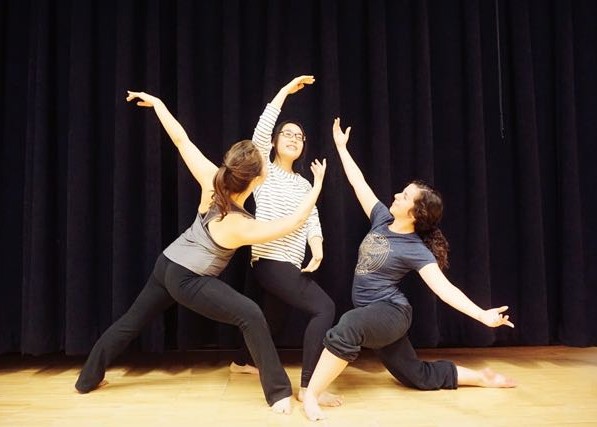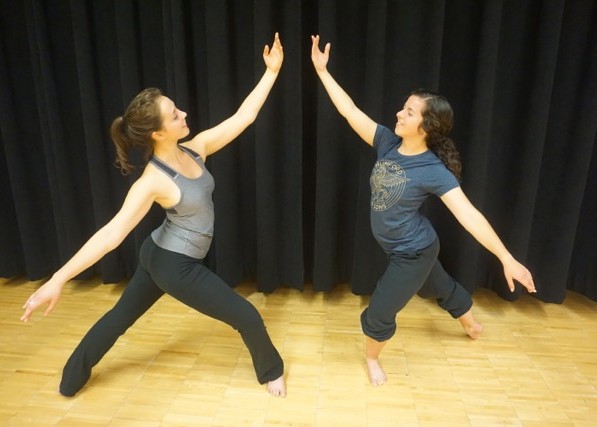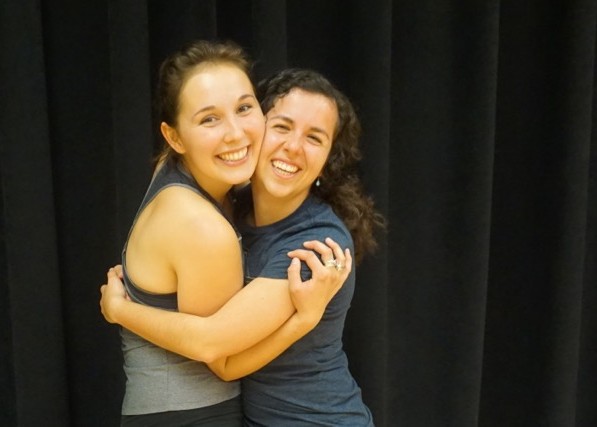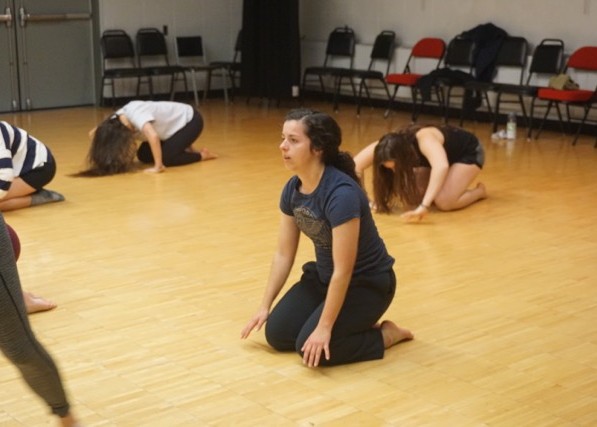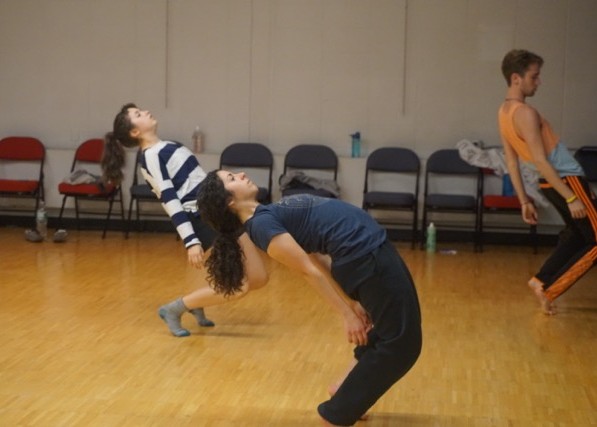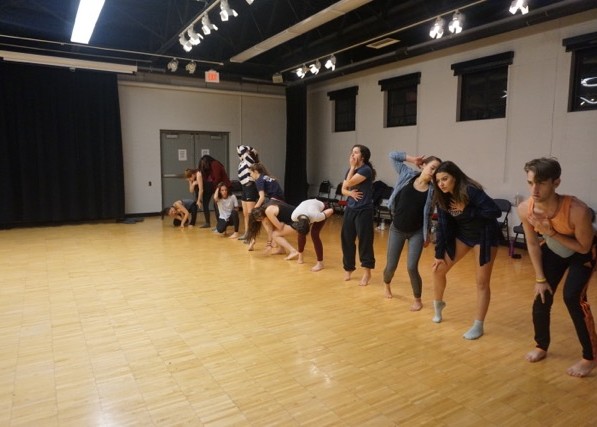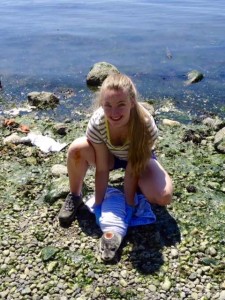
Caio and Emily on their trip to the Galapagos as a part of their summer research project
This interview was conducted with Emily Weaver and Caio Brighenti, two sophomores in the Benton Scholar program. Emily is intending to major in Environmental Geology and Caio is double majoring in Peace and Conflict Studies and Computer Science. This past summer, they travelled to the Galapagos and designed an educational virtual reality application using the footage they captured on their trip.
Could you tell me about the project you two worked on this summer?
C: This summer, we designed and started implementing an educational experience in the form of a virtual reality application, targeted towards children, but meant for anyone who’d like to learn about the Galapagos-
E: -or really just learn about science in general, but through the Galapagos. Because we believe the Galapagos are super exciting- it’s a melting pot of science. You can show them iguanas and how they survive volcanic eruptions and teach them about science.
The iguanas survive volcanoes?
C: Every island in the Galapagos is a volcano, that’s how they were formed. But, the iguanas have been around for longer than the volcanoes because the volcanoes kind of drift, get eroded, and “sink,” so the iguanas migrate to different islands. So, all of the iguana species are older than all of the current islands, which is really cool. Its through examples like this that someone can learn about science.
So, Emily, what did you have to do this summer in order to develop this project?
E: I had to learn all about the Galapagos. I had to learn about the geology, the biology, and how it is all interconnected. And then I had to write storylines for these kids to learn about- pathways that they can travel through and make it an adventure. Then, I gave that to Caio, who does his magic with a computer.

Alright, Caio, so what’s your magic?
C: I’m the computer man. So I worked on the programming, video rendering, video stitching- I took the beautiful ideas that Emily developed and the beautiful scripts that she wrote and turned them into a beautiful reality- a virtual reality. I worked in the Unity 3D Engine and I used the Google VR SDK to develop a pilot program of the virtual reality application. When you open the application, you start out with a map in front of you of all the locations you can go. The map is in a scene thats actually a shot we took with 360 cameras in the Galapagos. Obviously, we’ve been stitched out of the shots. Here, you can see some of the famous iguanas. So, let’s say you want to learn about the volcanoes, you can look at Sierra Negra, which is the biggest volcano on Isabela Island. You click on it, and boom, it takes you to it. This is what we accomplished by the and of the summer, and this is what we presented at the NASC fellowship colloquium. We did research under the Natural Sciences and Mathematics division, so at the beginning of the semester, we presented our findings from the summer. We got to show this off, along with a technical presentation about some of our design choices and those kinds of details.
E: And now there’s a guidebook for all the summer research positions where we wrote a summary about what we did, we’re on page 128. (Undergraduate Summer Research Directory)

What made you want to do this project?
C: I work in the Vis Lab, and I’ve worked in the Vis Lab since the beginning of the fall semester of 2016. And this project was done along with the Vis Lab director, Joe Eakin, who is my boss. What we do in the Vis Lab is produce things for the dome- I specifically produce virtual reality content for the Vis Lab. So naturally, when Karen Harpp had this idea and talked to Joe about it, it made sense to include me as the one who actually is doing VR stuff. So I guess it was a coincidence that I’m a Benton and Karen is the director of the Benton program, but it just worked out really nicely in that case.
E: I was just talking to Karen one day about what I was going to be doing over the summer, and I wasn’t really sure what I’d be doing. And she was like, “Hey, there’s this project that we’re working on. Do you like kids?” and I was like, “Yeah sure,” so she was like, “So, we’re working on this project- let me send you a bunch of information about it. Read through it, think about it, and tell me if you’d be interested. We’d love to have you.” Then, I read it, and I thought it was really cool.
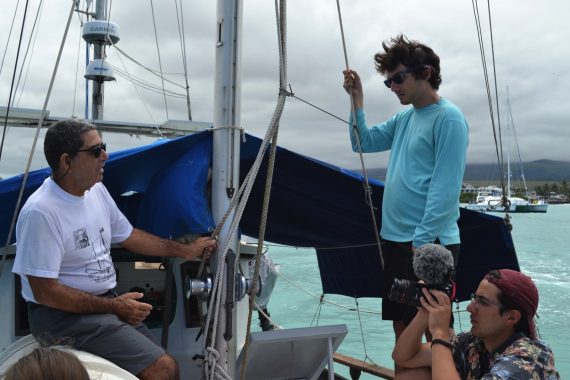
How long were you in the Galapagos? How did you like visiting a new country?
C: We were in the Galapagos for ten days including travel time. We spent the rest of the summer living at Colgate and working on the project here.
E: I thought going to the Galapagos was really interesting- I’d never been to a Spanish-speaking country.
How did your trip to the Galapagos compare to your trip to Europe with the rest of the Bentons at the beginning of the summer?
E: It’s a very hard comparison. Europe was an academic trip and this was a work trip and they’re very different places.
C: Obviously, the trip to the Galapagos was awesome. But, when you tell people, “Oh, i went to the Galapagos,” they imagine you being on the beach, enjoying the animals, and having a good time all day. But, we were working probably twelve hours a day, if not more. We were waking up at six, filming all day, coming back and cataloguing our footage, and going to bed at 2:00 a.m. It was hard work. We were using two sets of 360 cameras that are six cameras each and they have a huge mount, a huge pole, and a huge weight on the bottom. To get to the volcano, we walked ten miles or something absurd like that, and I would be hauling that thing on my back the whole time. So, I loved going and it was an awesome time, but wasn’t just a fun trip- it was a lot of work all day, every day.
E: And it was rewarding work, so that made it worth it.

So you’re still working on this project this year? Are you making a lot of progress?
C: Yes, we’ve continued to work on it. We had a meeting a few hours ago and another one Tuesday morning. We’ve shifted our focus a little bit to try and speed up progress because we realized progress hasn’t been as good as we’d like it to be during the semester. I’m pretty optimistic that it’ll pick up. The shift is lowering the VR element of it. We’re going to keep the elements of VR that we like and take away the ones we don’t like.
E: So, you’ll still be able to immerse yourself in these different landscapes, but it won’t be 100% of the time. So some of the time, you’ll be doing work on a computer or on your phone screen, and then it’ll prompt you to put on your VR headset and take a look around in the space. So it’ll still incorporate the innovativeness of VR, but it’ll be more manageable.



